- Learning time
- 10 minutes
- First play time
- 40 minutes
Framework
Designed by: Uwe Rosenberg
Framework is a simpler version of an already-simple game (Nova Luna) where players take tiles and lay them before you. Each player is forming their own grid of tiles, so each new tile must join any previous ones by lining up along at least one edge. The challenge is two-fold: to form adjacent tiles that complete tasks, and to complete a number of tasks before anyone else does.
Players each start with a bunch of markers – you can use less for a shorter game, but even with all of them Framework only takes half an hour – and a bag of tiles. The starting player draws out a number of tiles equal to the number of players +1 (so for two players you’d have 3 tiles, for three players 4 tiles and so on) and chooses one tile for themselves. Then everyone else takes a single tile and the starting player also takes the left-over, final tile. Everyone adds tiles to their grid, taking care to think about the best position for it.
The tiles are a mix of tasks (with numbers) frames (of various colours) and sometimes both. A tile with a silver six on it, for instance, wants to be adjacent to six silver frames. Only one of these needs to actually be next to the task tile – as long as that silver tile attaches snake-like to 5 other silver tiles, they are all considered adjacent for the task purposes. Some tasks are easier (3 yellow frames) and some demand you complete tasks in order (eg 4 red frames before 1 green frame, although it’s worth noting that you can complete the second task before the first one – you just won’t get to cross it off – see below)
If placing a tile completes one or more tasks, you now get to cross them off by placing a marker on the task tile(s) in question. The first player to place all of their markers wins the game!
The guru's verdict
-
Take That!
Take That!
No direct conflict at all, but certainly the choosing of tiles can and often will set others' teeth gnashing!
-
Fidget Factor!
Fidget Factor!
Low for two, climbing a little with more players
-
Brain Burn!
Brain Burn!
For a game with such simple rules, Framework does serve up a moderately impressive amount of brain-burning: which tile is best? Where should I put it? Which tile do my opponents want? Is it worth the sacrifice for me to take it, even though other tiles serve me better? Enough to give the game a bit of crunch, but not enough to make it drag.
-
Again Again!
Again Again!
The only variety here is the order the tiles come out of the bag. But for some games, that's all you need, and Framework feels like a minimalist, humble classic

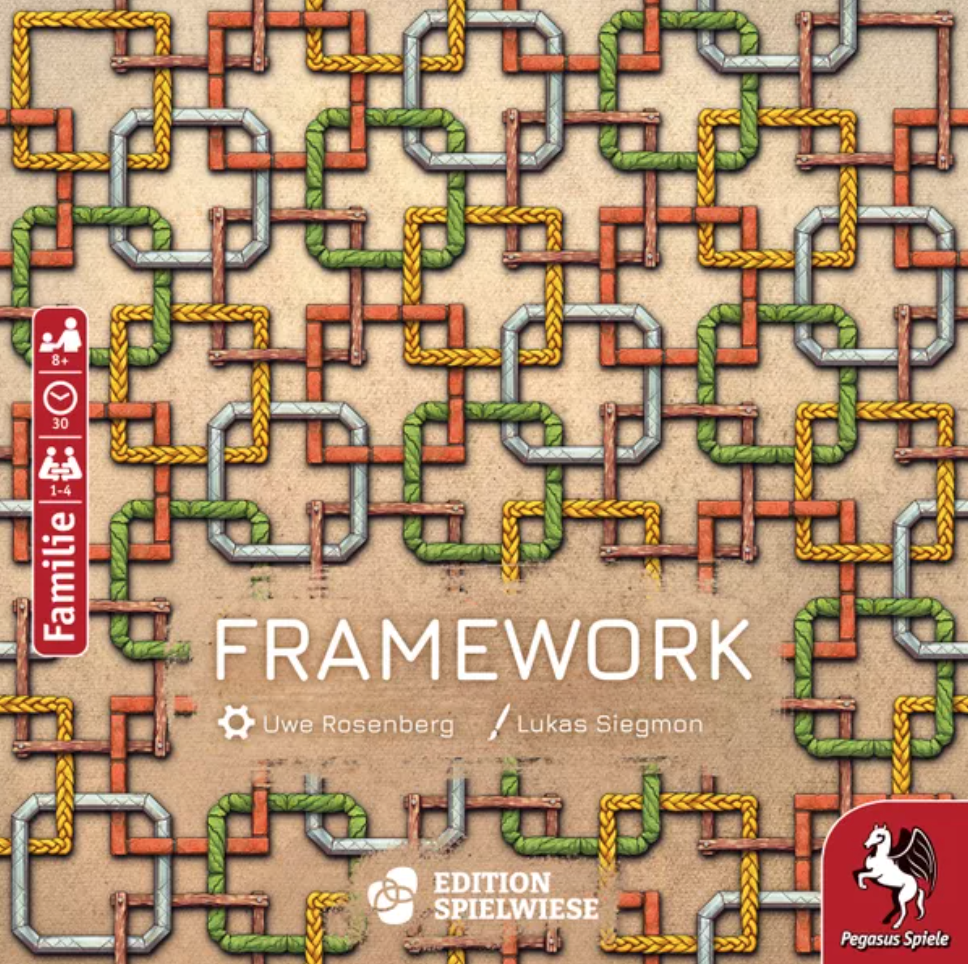
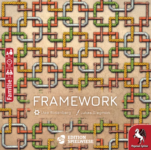
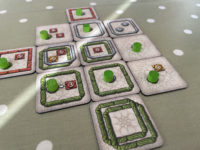
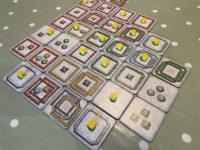
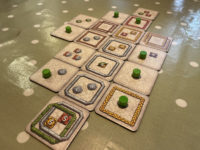
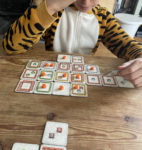


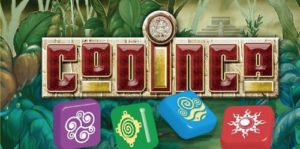
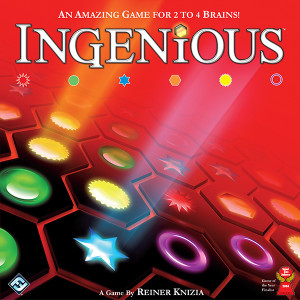
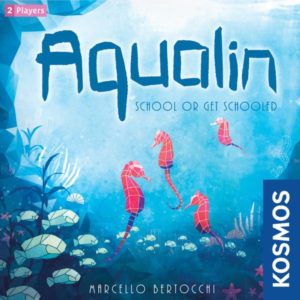
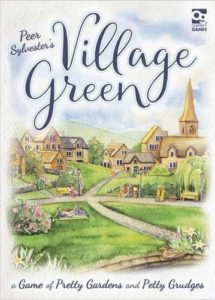
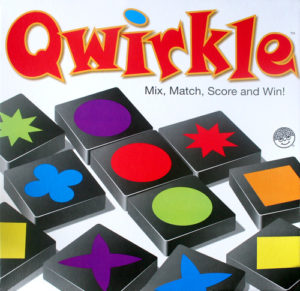
Sam says
Takes what Nova Luna did previously and streamlines it further into an even simpler game, whilst still providing that moving-parts puzzle that, whilst some may find dry and abstracted, others will love for it's simplicity and ease of access. My youngest and I have enjoyed many games head to head, and while it doesn't set off any fireworks, it does scratch an itch for the synapses.